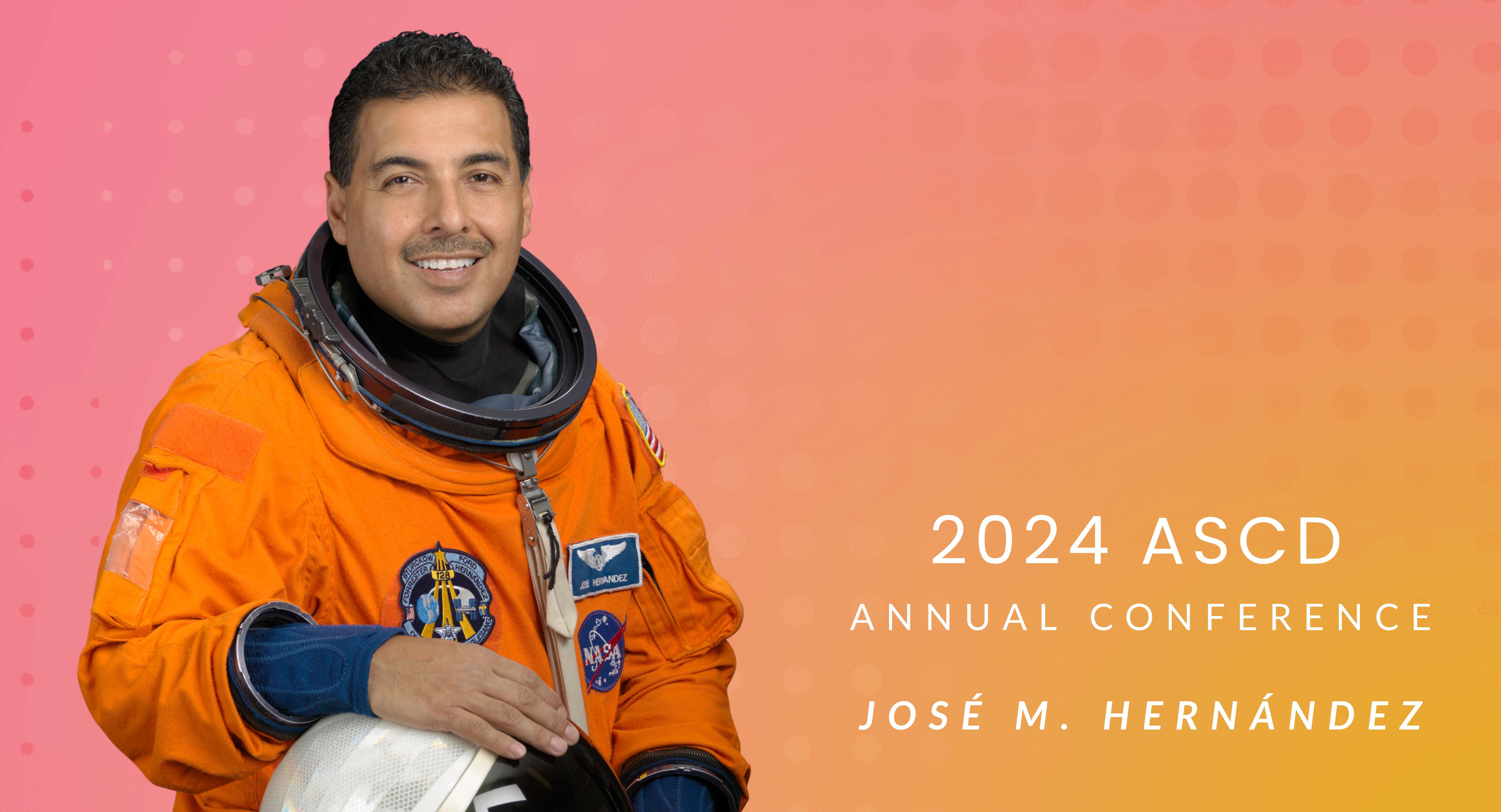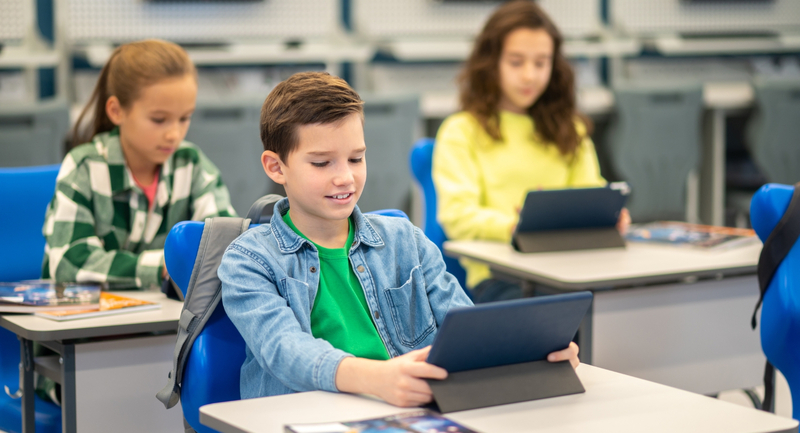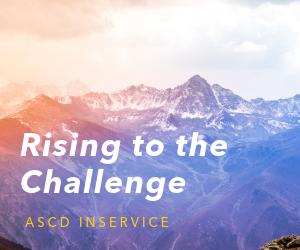José M. Hernández, renowned for his journey from a migrant farmworking family to a prominent position at NASA, discusses the profound impact educators had on his life in this interview with ASCD. Teachers had a transformative influence on Hernández, from advocating for his education as a child to supporting him through academic challenges. He acknowledges their role as unsung heroes in shaping the futures of students like himself.
Hernández, a former NASA astronaut and engineer, is the author of Reaching for the Stars: The Inspiring Story of a Migrant Farmworker Turned Astronaut (2012). Today, Hernández continues to inspire audiences as a public speaker, author, and advocate for STEM education, leveraging his experiences to motivate others to reach for their dreams.
Hernández will deliver the closing keynote address at the 2024 ASCD Annual Conference on Monday, March 25, 2024, where he will share insights on resilience and perseverance, drawing from his adventures in space exploration and public service.
Your journey from growing up in a migrant farmworking family to becoming an astronaut is truly inspiring. What role did education play in your journey? Were there any teachers or adults growing up who inspired your interest in space?
Education played a central role in my ability to reach my dream of becoming an astronaut, as did many educators and teachers. When I was a child, my family lived a nomadic lifestyle, following the harvest of crops. It wasn't until my 2nd-grade teacher, Ms. Young, stepped in that things changed. After I asked her for three months' worth of schoolwork to complete while my family and I traveled to Mexico, she took the initiative to visit my house and discuss with my parents the importance of staying in one place for my education.
In junior high and high school, it took me a while to learn the English language because of so many previous disruptions. So, math was my refuge. Two plus three is five in any language. A couple of my teachers created advanced math courses to challenge me. Then, in college, when I was struggling, a professor gave me a pep talk and said, "Hey, you know it doesn't matter where you finish as long as you get across that finish line." Educators played a significant role in my success, and I have the utmost respect for them. They are the great unsung heroes in our communities.
NASA rejected your application 11 times before you were selected as an astronaut. What advice do you have for students or educators about persisting in the face of failure or rejection?
I think we face failure and rejection everywhere. It's just a fact of life that we're going to encounter it at some point. How we react to it is what makes the difference. I view rejection and failure as learning experiences. I take a step back and ask myself, What can I do to improve my situation? Do I need to take another class or certification? Do I need more experience in areas where I lack it? Then, I pursue those improvements before trying again.
For example, I needed to become a pilot and certified scuba diver to qualify as an astronaut. I also learned Russian to meet NASA's language requirements. It's about being strategic and aggressive with your career and training. Despite 11 rejections, I never gave up because I believed in myself.
How does viewing Earth from space alter your perspective on the world or life in general?
It gives you the orbital perspective, as some people say. There were two “Aha!” moments I had in space. The first was when I first unbuckled my seat belt and went to the window to see our world from the outside. Only about 600 of us have had that privilege out of seven billion people. It's a very, very exclusive club, and there I was about to join it. When I looked out the window, we were flying over North America. I could see Canada, the U.S., Mexico, and part of Central America, and you know what struck me in awe? I couldn't tell where one country ended and the other began. I had to come out of this world to realize that down on Earth, we're just one.
Here was my next realization: we were orbiting Earth once every 90 minutes, so you see plenty of sunrises and sunsets. I wanted to see the sunrise, so I was watching the Earth's horizon as the sun was going to come out. From this perspective, you can see the sun rays hitting our Earth and the thickness of our atmosphere. And let me tell you, it's scary thin. I became an instant environmentalist and promised myself that any opportunity I got to talk about being good stewards of our environment, I should use the platform to speak about the benefits of that because from what I saw up there, it was a very fragile ecosystem.
Your foundation Reaching for the Stars aims to inspire kids to dream big through education. How do you believe education can empower children to overcome challenges and pursue their dreams? Do you have an inspiring story about a particular student you’ve worked with who has gone on to achieve success?
Through our foundation, we emphasize STEM education: science, technology, engineering, and math. One memorable moment was during a layover in Denver. A student recognized me, thanking me for sparking his interest in engineering during a school visit. He's now working for Hewlett-Packard. Another inspiring story is of a foundation scholarship recipient's graduation in Colorado. Despite being in Washington for a speaking engagement, we FaceTimed during her ceremony as she received her diploma. These stories reflect the gratitude and success of the students we support.
What's the one thing you want educators to take away from your ASCD conference talk?
I want educators to understand the profound impact they have on kids. It's about focusing on the little things that shape young individuals into great citizens. When my 2nd grade teacher, Ms. Young, visited my family to convince my father to stay in one place, that changed the trajectory of the whole family. When I blasted off into space, she was there at my invitation, sitting next to my parents. Remember this story when feeling frustrated. Your work makes a difference, even the little things. Every educator has the potential to be like Ms. Young, and I encourage you to continue your impactful work because even the little things are so important.
Editor’s note: This interview has been edited for length.





